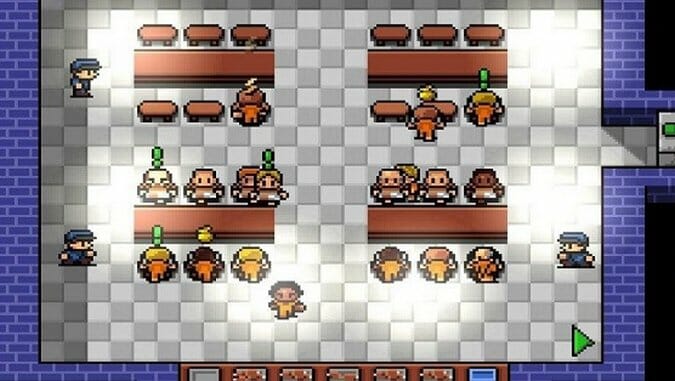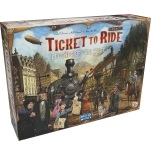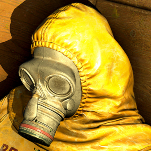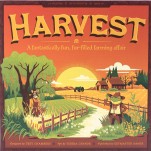The Escapists: Cool Hand Lukes

The first thing that needs to be addressed when writing about a game that uses a prison as its setting is to figure out what it is saying about prison. For the United States, we can point to the contemporary prison-system as one of our great shames, and if the future is marginally better in any way then the descendants of this country will look back at the way we use prisons as both racist and classist weapons that turn populations into profits for private companies as a grand collective failure of this society.
There are games about prisons that have something to say about them. Prison Architect, at least in its unfinished state as an Early Access title during the last year, made a comprehensive argument about the inertia of the corporate prison system. That game showed that once a prison was being depended on by the State, there was very little for it to do other than grow while cutting costs in order to accommodate more prisoners to keep the cycle going. It is an illustration of a system that props up our contemporary world, and we can learn something from it.
On the other end, there is something like the failed Kickstarter game Prisonscape, which is intriguing in the way that it suggested that prison life be approached as a totalizing RPG system. Rather than the abstraction of a systemic game, Prisonscape suggested that following the model of a show like Oz in another medium would allow for a particular look into how prisons operate.
I don’t think that there is any kind of content that games should not touch. Games are too wide a medium, literally encompassing thousands of different forms, and I think it is more important to think through the ways that certain kinds of games express certain kinds of content rather than approaching some kind of blanket ban on what games do or do not have license to talk about. I think that we need games that explore, and expose, the contemporary prison system for what it is.
This brings me to The Escapists, a game that drops the player in the middle of a simulated prison and demands that they escape from the premises in whatever way that they can manage. After a short tutorial, the game opens into its full expression, and the player can use any method at their disposal to liberate themselves from their incarceration: they can dig out, they can try to cut through the fence, they can start a prison revolt, or they can steal keys from guards to create dupes in order to walk out the door. I’m sure there are other options, but that list should help you understand the breadth of solutions that the developers of The Escapists wanted to accommodate.
I’m choosing the word “solutions” very carefully here, because at the end of the day The Escapists is a puzzle game. The act of playing the game is something like this: you obey the heavily regulated prison day schedule while gathering items and doing favors for other inmates in order to facilitate your escape. You steal things from those inmates, as well as from your prison job, in order to use them to cut through fences or dig and support tunnels. You then perform certain actions in a sequence so that you can finally reach freedom.
The Escapists is a game for patient people. It requires you to scout locations, figure out the shape of the prison you are locked in, and demands that you understand the social dynamics of that prison as much as you do the materials of it. Angering other inmates by beating them up or stealing their gear will provoke them to attack you randomly, often ending you up in the infirmary at their hands or the batons of guards. Worse yet, it can end in “illegal” and necessary items being confiscated from you, setting your plans back several days of in-game time.
I found the game profoundly difficult because of this. I often felt like I was treading water, merely going through the motions of prison life so that I could spend the last ten minutes of my working time using a trowel to dig five more feet of tunnel under the building I was working out of. After that, it was back to the same schedule until I could dig again.
-

-

-

-

-

-

-

-

-

-

-

-

-

-

-

-

-

-

-

-

-

-

-

-

-

-

-

-

-

-

-

-

-

-

-

-

-

-

-

-









































